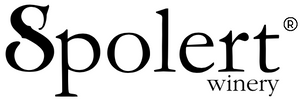
Viva (simple rules of the toast).
The basics about water gentlemen, the basics: a short lesson so that you will never be unprepared for the pitfalls of water!
First of all, in order not to err, we listen to the old adages, "never toast with water," and who are we to deviate from the ancient wisdom?
This opens up a sea of hypotheses, not wine unfortunately: it seems that an old American Navy manual from 1896 contains some interesting rules.
It is a vademecum of manners for members of the Navy corps, in which there was a special section devoted precisely to the bon ton of the toast!
First of all, it was literally specified that it was improper to toast with water, in fact all water glasses were temporarily removed from the table at the time of the toast and teetotalers were obliged to participate, but they could simply put their lips to the glass, strictly of Port.
Another sailor saying has it that he who toasts with water dies by drowning...heaven forbid!
A more historical version has it that in ancient Greece toasts with water were the rule to accompany the souls of the departed to better life...when in doubt, best to avoid accompanying toasts.
Another explanation, again related to those nice Navy drinkers (English this time), has it that at a time when the English Monarchy was overpowered by Oliver Cromwell in the 1600s, Navy servicemen attached to the Crown chose an unusual toast in protest: they carried the goblet of wine past the glass of water, simulating a metaphorical crossing of the English Channel, beyond which lay their exiled King, as a sign of salute and respect. Anti-monarchist forces thus forbade the toast before the water was removed from the tables and water was banned from the toasts.
In short, water did not have a good reputation, but the toasting ritual also has its own historical rules.
Why do we raise our glasses when we celebrate in the first place?
Actually, the origin of the gesture is less amusing than people think: it is said to have been customary in ancient Rome to bump cups filled with wine so that the drops of the drink would spill between different glasses, and in this way avoid unwanted poisonings from unsympathetic guests, it seems to have been fashionable to poison one's neighbor by putting some substance in the cups.
But the expression "cheers" is also ancient: in classical Greece it was used by the master of the house who drank first, so as to reassure guests (in short, even Greek myths liked to poison themselves...).
So now that we know the basic rules (in fact, nothing below 10 degrees) let's raise a glass and toast!
"Cheers" has Chinese origins: it has an onomatopoeic sound and means "you're welcome," and was used by sailors (but how much did these sea wolves drink?) in the form of a joking, but cordial, greeting.
"Prosit" is a true Latin greeting: " may it be good for you," and what better greeting?
"Viva!" is the exclamation we like best, a hymn of joy and exultation that brings good cheer.
"Mabuhay': in Filipino it means 'yay', 'cheers'.
In Madrid you might run into a folkloric ""Arriba, abajo, al centro y pa dentro", easy no?
In Sweden and Denmark it is practically obligatory to look the person you are toasting with in the eye and say "Skål!" ("skol") which means "cup", while in Finland it is "Kippis".
In Balkan countries you will have to pronounce "Ziveli" ("ziveli") or "We live long."
We close with a very international "cheers" to all.
Happy Holidays!
